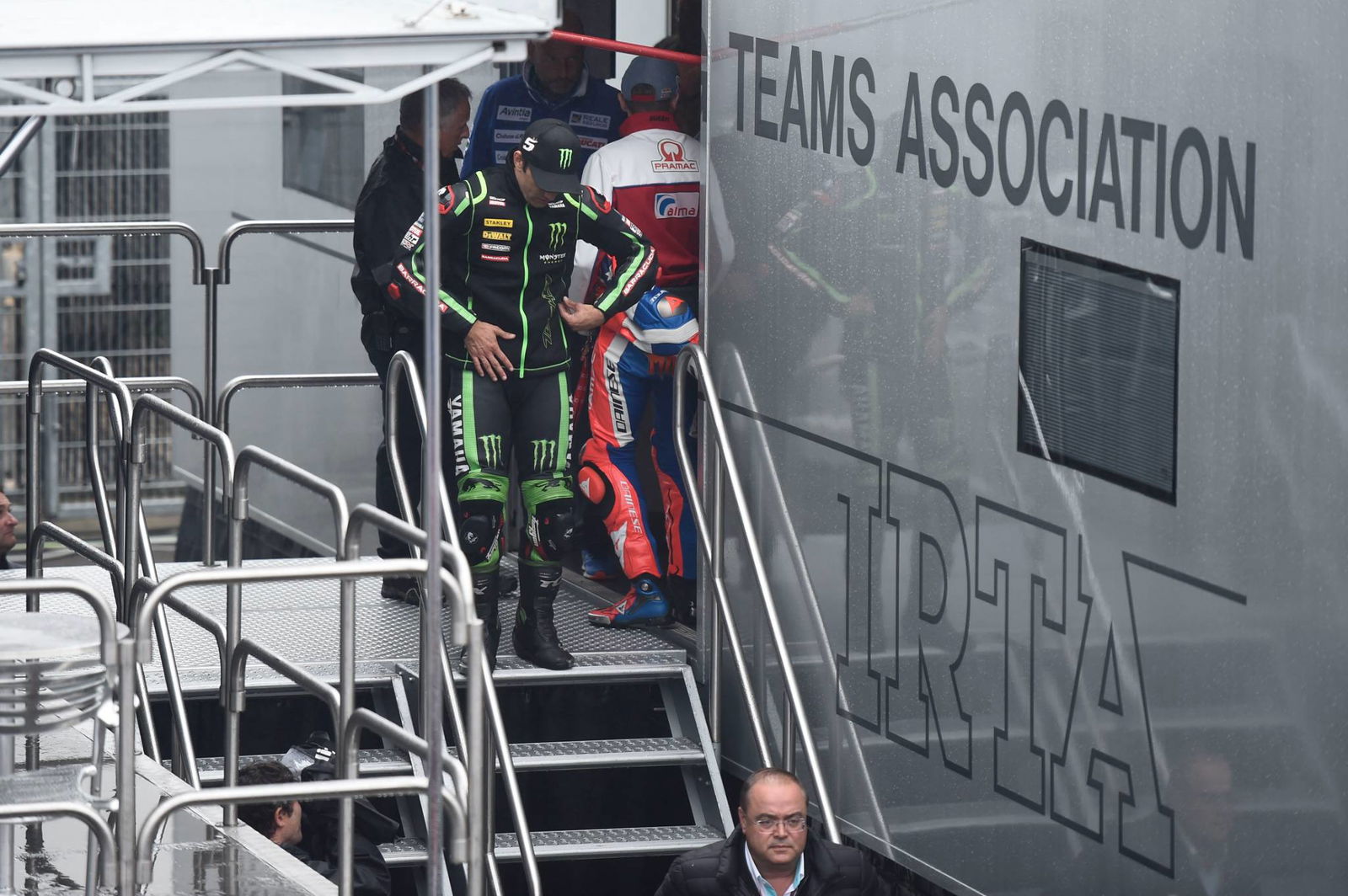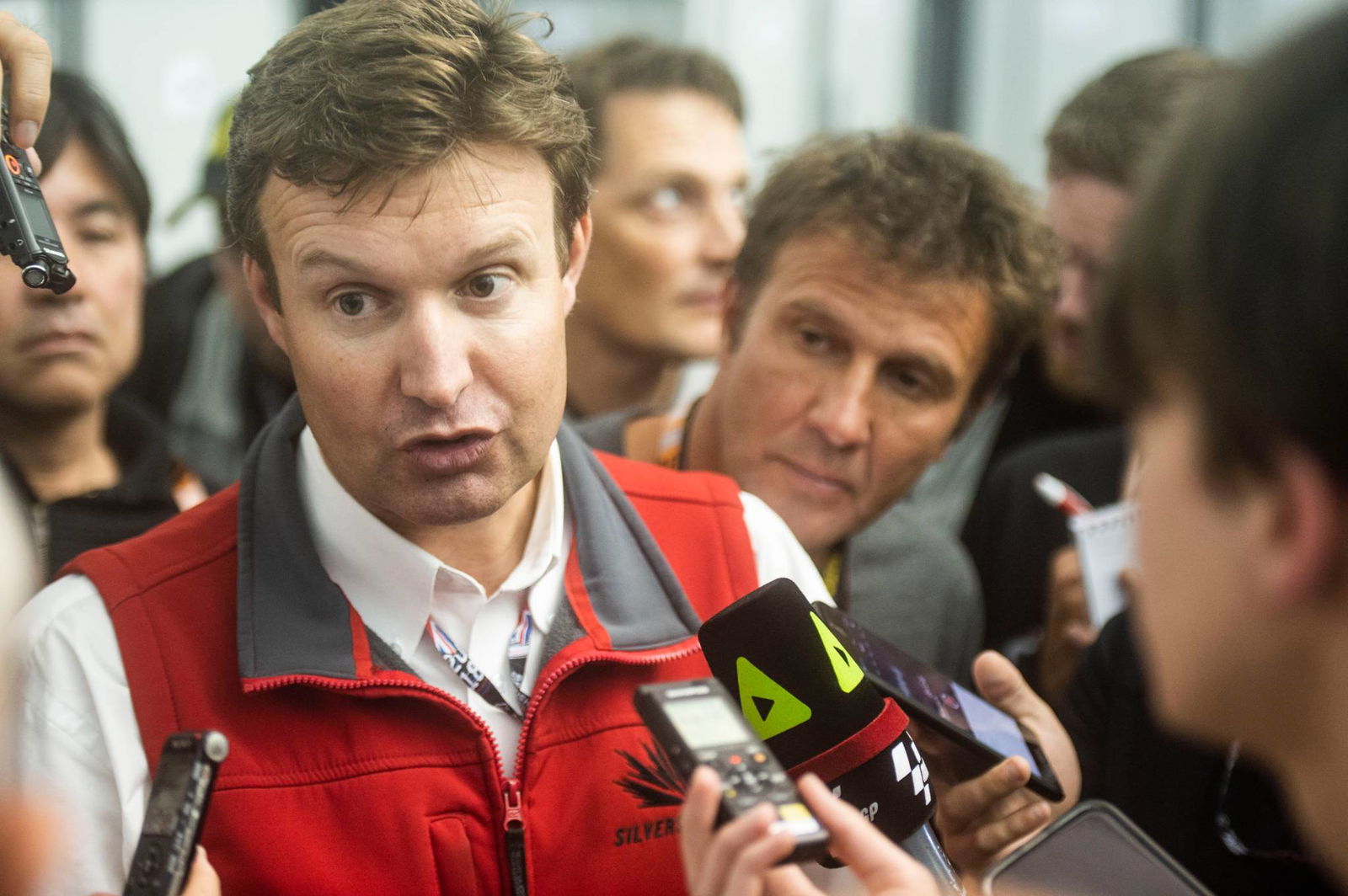British MotoGP cancellation triggers investigation into new asphalt
MotoGP race director Mike Webb says Silverstone’s new asphalt with insufficient drainage caused of the cancellation of the British round which has sparked an investigation.
The British MotoGP became the sport’s first round to be canned since the 1980 Austrian Grand Prix as rain washed out all three world championship races due to standing water on the circuit causing safety fears.

MotoGP race director Mike Webb says Silverstone’s new asphalt with insufficient drainage caused of the cancellation of the British round which has sparked an investigation.
The British MotoGP became the sport’s first round to be canned since the 1980 Austrian Grand Prix as rain washed out all three world championship races due to standing water on the circuit causing safety fears.
A number of riders suffered with aquaplaning during a rain shower in FP4 with Tito Rabat sustaining a nasty femur, tibia and fibula fracture after being hit by Franco Morbidelli’s Marc VDS Honda as the pair crashed out separately in the wet FP4 which saw the Spanish rider taken to hospital for emergency surgery by air ambulance.
With rain forecasted to return on Sunday a new schedule was drawn up to push the MotoGP race to 11:30 – 90 minutes earlier than its previous slot – but it proved too late as the rain arrived midway through Moto3 warm-up and soaked the circuit.
Webb explained safety concerns forced the cancellation with the recently resurfaced Silverstone unable to shift the rain water.
“We have been forced to cancel today’s event due to the track conditions,” Webb said. “Primarily it is due to water accumulated on the surface and I think you’ll see on the results of when we’ve been running in heavy rain that the circuit is not safe in some places because of the way the water does not drain from the surface.
“We did everything we possibly could to run an event today, obviously the very last thing any of us want to do is to cancel an event, however, safety remains a priority.”
Webb also said running the British MotoGP raceday on Monday was considered with dryer conditions forecasted but the idea was shot down by a number of team managers who were against the option.
“When it was obvious that the track condition was not improving, even when the rain abated a little, the track surface was still too wet, we discussed various options including running tomorrow,” he said. “That was discussed with the teams and with the circuit, the promoters and organisers, it was concluded that it was not a possibility.
“The other possibility the circuit suggested which we agreed with was to delay today as much as possible until such time when the conditions were safe. We’ve reach the point where the rain is getting less the circuit is still not in a condition where we could run races.”
Webb also says given previous wet races at Silverstone have been run without issue the cause of the cancellation could be pinpointed down to the new asphalt. Silverstone was entirely resurfaced last February but new bumps were caused by new asphalt which was a major concern during the dry running on Friday until the rain issues became obvious on Saturday.
“We’ve had a number of years of experience here in very wet conditions and recently with the old surface we have been able to run races,” he said. “This year with the new surface is the first time we’ve had quite so much standing water in critical places on the track.
“This is a direct result of the track surface. I must say from the circuit point of view the staff have done an unbelievable effort, not just today but over the whole weekend, an enormous effort to make the track safe and until the last minute they were still working but unfortunately we couldn’t battle nature.”
FIM safety officer Franco Uncini confirmed the circuit will carry out an investigation, which is expected to take six weeks, into the track surface as it seeks solutions for next season to avoid repeat problems.
“They are looking into an investigation which will take around six weeks to let us know what was the problem of this kind of situation,” Uncini said. “We will wait for this to know exactly what the reason was for the problems but for sure they will make a new asphalt.
"The circuit itself must do the investigation. It must have the company that made the asphalt and do it in a proper manner. It is up to the circuit."

